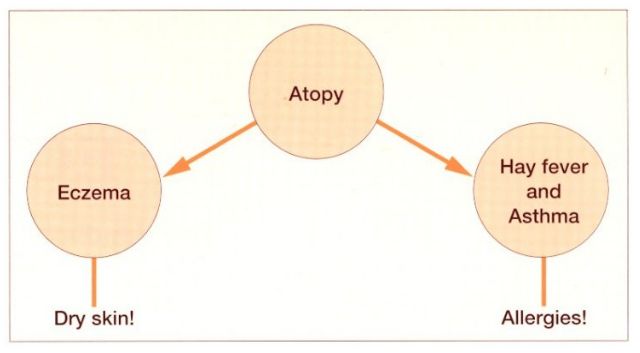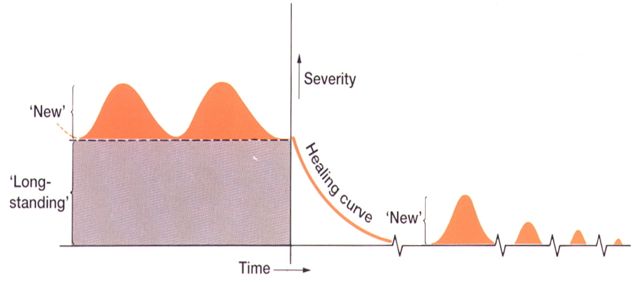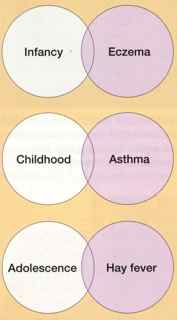FAQ: Which is more important in atopic eczema, allergy or dry skin?
Atopy is a term defining the constitutional susceptibility to develop certain linked illnesses, especially eczema (= dermatitis), hay-fever and asthma.
The eczema associated with being atopic is called therefore atopic eczema. Being atopic is on the increase, and atopy tends to run in families. The first usual manifestation of atopy is eczema in early childhood. It can be followed later by asthma, and then hay-fever. This is called the "atopic march".

Thus dry skin leads to itching (a feeling), which then leads to habitual scratching (a behaviour) and this is an important cause of chronic ("longstanding") eczema: hence, there is another important "march".
While at present research continues to find ways of preventing the "atopic march", fortunately chronic atopic eczema can be treated effectively using The Combined Approach over 4-6 weeks only. This involves optimal topical treatment with emollients and topical steroids, combined with habit reversal for habitual scratching: it allows important natural healing - see the "healing curve" below.
 |
Once chronic atopic eczema is successfully eliminated, although the skin remains susceptible to acute ("new") eczema, as time passes and topical treatment is kept optimal, acute eczema relapses can become increasingly less troublesome, any hypersensitivities can become much less apparent, and chronic eczema need never recur.

